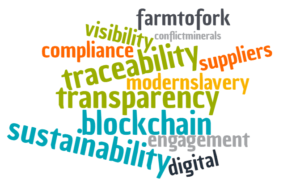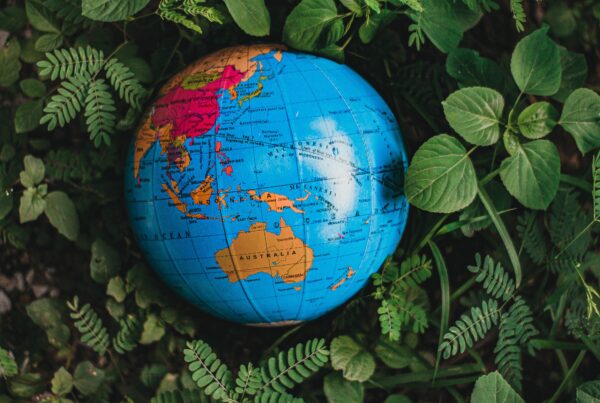 The world of supply chains has transformed. Consumers have greater expectations about the products they buy—they must be safe, sustainable, and have minimal impact on people and the planet—and companies are responding by ensuring their supply chains are ethically sourced and comply with governmental regulations and company standards. This transformation has meant the rise of supply chain buzzwords to describe new technologies, goals, and innovations as the industry shifts to accommodate this new world. But these buzzwords can be vague, overused, and even misused, leading to greater confusion about what they mean.
The world of supply chains has transformed. Consumers have greater expectations about the products they buy—they must be safe, sustainable, and have minimal impact on people and the planet—and companies are responding by ensuring their supply chains are ethically sourced and comply with governmental regulations and company standards. This transformation has meant the rise of supply chain buzzwords to describe new technologies, goals, and innovations as the industry shifts to accommodate this new world. But these buzzwords can be vague, overused, and even misused, leading to greater confusion about what they mean.
Here are 5 popular supply chain buzzwords, explained:
1. Blockchain
A database that records digital transactions in secure and transparent way. They are public, decentralized, and secure, making them an appealing choice for tracking the supply chain. However, blockchain is a technology and is only as good as the data fed into it, and the choice to adopt blockchain must be made wisely.
Read more: Do you really need blockchain?
2. Traceability
Capture of granular information about an ingredient or component. As opposed to transparency, which captures high-level information regarding a supply chain (product or facility name, product components, facility locations, etc.), traceability focuses on tracking specific batches or purchases orders in their supply chain journey. Traceability is ideal for consumer communication, but can be more difficult to implement.
Read more: Transparency vs. Traceability: What’s the difference?
3. Plant-based meat
Vegetarian-friendly meat substitutes often made of soy or gluten. Plant-based “meats” are extremely popular with consumers today. The industry is valued at up to $13 billion and the number of people in the US who identify as vegan has increased by 600 percent in the last three years. Transparency for plant-based meat products remains just as important to consumers as for traditional goods.
Read more: Uncovering the mystery of alternative protein
4. Modern slavery
Labor that is done unwillingly or provides an individual with no viable alternatives. There are multiple kinds of modern slavery, including forced labor, child labor, and debt bondage, and today there are an estimated 40.3 million people trapped in modern slavery.
Read more: 4 steps to combat modern slavery in your supply chain
5. UN Sustainable Development Goals
A set of 17 goals adopted by UN members states to create a safer, more sustainable, and prosperous planet. The SDGs encompass 169 individual targets, and many companies today set sustainability and social responsibility goals around these targets. The UN has set a deadline of 2030 to achieve the SDGs.
Read more: 3 ways transparency can achieve the Sustainable Development Goals












